Nûçe نوچه
(Hevpeyivîna Nivîskar) Nivîskarê ku Bram Stoker-berbijêrkirî, Ronald Malfi, bi iHorror re rûnişt û bi Keçikên Biçûk û Bêtir Axaftin
“…she expected her old home to look different–empty, perhaps, like the molted skin of a reptile left behind in the dirt, as if the house had nothing left to do but wither and die…” – from Keçikên Piçûk
Last month, award-winning horror author, Ronald Malfi, released his latest novel, Keçikên Piçûk. (Bipelînin VIR if you missed my review) One of the best writers going, Malfi’s power is in his ability to craft creepy stories with eerily delicious descriptions like the one above. I’ve been a fan of this man since reading his first excellent creep-fest, Berf back in the Leisure Book Horror days. He blew me away with the follow-up, Staircave Floating, and has continued to leave me in awe ever since. Keçikên Piçûk is an excellent addition to Malfi’s body of work.
This week, I got a chance to chat with Mr. Malfi. He shares his influences, his experience, his love of paper books over the electronic landslide, his advice to young writers out there, and much, much more.

Glenn Rolfe: Hey Ronald, you know I dig your work. Thanks for taking the time to do this.
Ronald Malfi: No problem, buddy. Thanks for having me.
GR: How old were you when you got bit by the writing bug? Did you get started right off?
RM: I was probably around 10 or 11 years old when I started writing seriously. By “seriously,” I mean with discipline and regularity. I’d gotten my hands on an old manual Olympia typewriter and would write several pages every day, usually when I came home from school. These early efforts were just as badly written as you might expect, but I loved writing and I recall specific milestones from back then—hitting my first ten-page story, or writing something that exceeded 100 pages which, for a kid my age, was quite a feat—with great fondness and a sense of achievement, even now. Once I was bitten by the bug, I knew I wanted to do it for a living, and never wavered in that determination.
GR: Give me two books that had an early influence/made a large impact on you.
RM: As with most horror writers of my generation, I’ll cite two Stephen King titles—The Eyes of the Dragon, which was the first King book (and possibly the first adult novel) I read as a kid, and then sometime later, King’s Ew. I remember some kids at school talking about the book, and particularly the controversial sex scene in the book. We were in middle school, so what is that? Eleven years old? So I made it a point to hunt down a copy of the book and search out that controversial scene. Yet when I started reading the book, I was completely shaken by its grandeur and magnificence and forgot all about the scene for which I’d originally gotten a copy of the book. I was roughly the same age as the kids in that novel and it had such a profound effect on me. I’ve still got that original paperback, although it’s tattered to hell and split into two halves. I’ve read it maybe three or four times. A wonderful novel of childhood fears and innocence lost.
GR: Give me two recent works that had a similar impact.
RM: Two books that jump to mind are Girl Imagined by Chance by Lance Olsen and Glen Hirshberg’s The Snowman’s Children. Though neither are exactly “recent,” both of those books are transcendent and highly recommended.
GR: Most of us going right now in the horror biz were huge Leisure Book fans. You released Snow with them. What was the experience like for you?
RM: I’ve got an entire bookshelf dedicated to those old Leisure paperbacks, and it still rankles me to think about what happened there. Without getting into the gritty details of the bankruptcy, I’ll say that I was ecstatic to sign with Leisure and Editor Don D’Auria back in…I guess around 2008 or so. Don initially signed me for one novel, Berf, which did pretty well for them. It was in all the bookstores and garnered me an audience much more expansive than I’d had in the past. If nothing else, I’ll credit Leisure and Don D’Auria for introducing my work to a much wider readership than I could have on my own. I was in New York City for, I think, BookExpo that year—this would have been early 2009, now that I think about it, because I was there to promote Shamrock Alley—and I met Don for some drinks and we went to his office. Man, it was just what you wanted his office to look like, with manuscripts stacked in towers on every available surface, wedged behind the office door, shoved under desks and bookcases. I had stars in my eyes, man. Don offered me free books—I could have probably gone away with 20 paperbacks, but I didn’t want to seem greedy, so I took only a copy of Wrath James White’s Vejîner and Jeff Strand’s Çap. It was a great trip and Don was a wonderful guy. Before Berf had hit stores (I recall) Don sent me a contract for two additional novels. These were Staircave Floating û Cradle Lake. However, before those contracts were submitted, I could smell smoke on the horizon and started asking questions about my late payments for Berfê. In short, I never submitted the contract for Staircave Floating û Cradle Lake, and was able to take them over to my then-current publisher, Medallion Press, who did a magnificent job with those titles. I was also about to get back the rights to Berf, which was ultimately reprinted with Delirium Books and remains in print with Darkfuse. The Leisure book club was a great way to get newer authors into the mainstream and its demise is more than just unfortunate—it’s tragic.
GR: You write a damn good ghost story (The Mourning House, Floating Staircase), but you’re not stuck in that sub-genre. You’ve done aliens, evil plants, Cthulu, and the horror in humans. I’m definitely in the same boat. I can’t see the attraction in writing the same thing over and over. What are your reasons in the variances of subjects or monsters?
RM: Probably just what you’ve said—that I’d get bored writing the same thing over and over again. Some authors find a niche writing…I don’t know…vampire or werewolf or zombie fiction…and man, if it works for them, that’s great. But I’d lose interest doing something like that. I can’t even summon the gusto to pen a sequel to any of my books, let alone write in the same genre for six, seven, ten books.
GR: Is there a book you want to write that might surprise your fans?
RM: Readers who know my earlier works might say that I’ve already written those books. My third novel, The Nature of Monsters, was a mainstream novel about a writer who chases his friend, a poet-turned-prizefighter, from a small Kentucky town to Baltimore. Nothing scary about it, except for the sales numbers. Similarly, people who have gone back and read my fourth novel, Via Dolorosa, have commented that it seemed like a different writer had written it. I was writing books on spec back then and not beholden to any contracts, so in a way, I was free to write whatever I wanted. And that’s exactly what I did.
GR: When I read Floating Staircase, it had the same effect on me as Boy’s Life. I had been writing for less than a year and it almost scared me out of even trying. It was that good. Just your intense story, the mystery, the characters, the beautiful descriptions that you utilize without ever over indulging like some authors. Was there ever a book like that to you. One that made you say, “fuck, I can’t do va. "
RM: It’s funny you mention Boy’s Life, as that book was one of the influences on my writing career, and specifically for my novel December Park—which Mr. McCammon was kind enough to provide a blurb. Talk about star-struck! But, sure, I see what you’re saying; I’ve read plenty of books that are just preternatural in their power. I have always been in awe of writers like Hemingway, Thomas Pynchon, Peter Straub, Robert McCammon, Dan Simmons. I was a young teenager when I first read Lolita, and even though I guess some of the nuances were lost on me at the time, I recognized that I was reading something written by a god, and that it was something I’d most likely never be able to compete with. And I think that’s the trick—you can’t try to write in order to best your betters. There will always be some book out of your reach, and you’ll just wind up hyper-extending your arm grasping for it. The best books are honest, simple books, written in your true voice and telling stories you’re passionate about. That’s it, really. That’s the secret.
GR: Which of your books holds a special place in your heart and why?
RM: Floating Staircase û December Park, both of which hold some very strong autobiographical elements. They were also the two books where the final product was pretty close to how I originally envisioned them in my head. Usually books change form midway through the writing process—a casualty of writing without an outline or notes—but those two pretty much stayed on course, at least as far as the overall tone and feel of the books, if not for the particular plot-points within.
GR: What are some of your favorite films? Horror or otherwise.
RM: Raiders of the Lost Ark; Back to the Future; Gremlins; Jaws; Close Encounters of the Third Kind; Fight Club; The Big Lebowski; Star Wars.
GR: Excellent choices! What’s one of your favorite things to do outside of the writing life?
RM: Spending time with my family.
GR: You’re a big proponent of not getting complacent. You’ve told writers to reach higher. How does a young writer know when they’re ready to reach for that next level?
RM: A lot of newer writers who are published through the small press for, say, their inaugural novel come away as if they’d been hit by a bus. They’re shocked at the pitiable royalty statements, the lack of respect they’re getting throughout the rest of the industry, the lack of interest from booksellers who really have no interest in having you hold a book signing in their stores. This is the reality for some of those writers, and I think my recommendation to those writers is to not try to talk up your achievements (and your publisher, who’s really doing nothing to promote you) and pretend you’re bigger than you are, but to hone your skills, find the right people with whom you should be speaking, and ultimately put yourself in the place you were previously pretending to be. Does that make sense?
GR: Do you advise getting an agent? If you have or had one, what was your experience with one like?
RM: It’s that old chestnut, isn’t it? A bad agent is worse than having no agent at all, but you generally can’t get a good agent until you don’t need one. I currently have an agent, and she was instrumental in landing my current book deal with Kensington. We had a similar game plan for my latest book, Little Girls, and we were always on the same page as each other—no pun intended. She’s also a wonderful sounding board when I begin to question my manuscripts, which I do often. These are invaluable qualities in an agent. Unless you’re happy in the small or indie presses—or if you prefer to self-publish—you’ll eventually need an agent to land a deal with a bigger publishing house. That’s been my experience, anyway. I’d recommend finding out who reps the authors you enjoy reading at a particular publishing company and contacting them. Send them your best, most cleanly edited work, and don’t be an unprofessional asshole about it. If your work is good, someone will want to rep it.
GR: Worst and best experience in your writing life so far.
RM: Things are mostly good with the writing these days. I’ve worked very hard to get to where I am, and after 13 novels, a handful of novellas, and uncountable published short fiction, I’m very happy with what I’ve achieved. I write what I want to write and don’t compromise. I’ve had some wonderful experiences being invited to speak at conferences around the country, meeting wonderful fans and talking with writing groups, speaking with students at all levels, and just being able to write and converse with my readers about my fiction. All of those are wonderful things. Perhaps the lowest period is when I find myself in a funk, suffering a bit of writer’s block, I guess. That’s when I start growing envious of those guys who write nothing but vampire fiction, because I think maybe I could just switch to autopilot and pump out another book if that were the case. But I try to do something different with each new book, and it’s taxing. Not to mention that I’ve got two very young children who also take up much of my time. Nonetheless, I’ve been publishing one novel a year for the past several years now, and plan to continue doing so.
GR: I know you’re not an eBook guy. What gives? Could you ever be swayed?
RM: I’ve got nothing against e-books. Personally, I prefer to hold a book in my hands. I’m extremely obsessive-compulsive about the specific typographical nuances of books, like the font used, the spacing, the margins, the way the pages are cut—these things are just as much a part, or almost as much a part, of reading a book to me as the story. If someone gave you a pill that would fill you up for the day and you’d never have to waste time eating a meal, would you take the pill? Or do you enjoy the taste of steak and pizza and french fries too much? To me, that’s the difference.
GR: Barker, Straub, King, McCammon—Which of these are your favorite?
RM: Christ, how can I answer? King is king. Hands down. But Straub and McCammon have such a beauty to their words. Straub in particular always leaves me wondering what brilliance I have missed between the lines of text, for he writes like someone burying artifacts in the sand. You’ll never find all those artifacts, but you may find enough to put the puzzle together. I was never a really huge Barker fan, though I’ve always enjoyed all his books. Pirtûkên Xwînê were great fun, and I’ve always been partial to his novel Sacrament, which many of his fans tend to overlook.
GR: Name a few books by these guys that you consider under-appreciated.
RM: Well, Sasanî by Barker, as I’ve mentioned. As for McCammon, I’m still astounded by the number of people who haven’t read Boy’s Life. It’s truly a classic, quite possibly ew seminal coming-of-age genre novel. Is King under-appreciated at all? I’ll admit a fondness for Eyes of the Dragon, since that was the first King I’d read as a child and it holds a special place in my heart. Not many have read it. Would a Bachman novel count? I’ve always thought Meşa Dirêj was brilliant. And lastly, I think pretty much everything Peter Straub has written is under-appreciated. His novel Julia was a big influence on my latest, Little Girls. Romana wî The Throat is a staggering achievement which, on its surface, comes across like a post-noir detective novel, but it’s really something much bigger and hungrier than that. I’ve reread The Throat countless times. Many people love Ghost Story, as do I, but The Throat is Peter Straub in all his full Straubiness.
GR: Lastly, would you ever co-write a novel or novella with another author? Maybe someone from Maine?
RM: Ha! No subtlety there, huh? I’ve kicked around the idea of collaborating with a few other authors in the past, but to be honest, for me, writing a book is such a personal, haunting, grueling, individual endeavor, I have no idea how I’d go about sharing such brutality with another human being.
GR: Thanks for your time, Ronald. I appreciate it.
RM: Any time, Glenn. Thanks for having me.
Keçikên Piçûk, Agahdarî û Sînopsîs
- File Size:1769 KB
- Dirêjahiya Çapkirinê:Rûpelên 384
- Çapemend:Kensington (30ê Hezîrana 2015an)
- Dîroka Belgekirin:June 30, 2015
Ji berbijarê Xelata Bram Stoker Ronald Malfi romanek bi heybet ya zaroktiya ku ji nû ve hatî vedigerandin, bîranîn radibin û ditirsin ji nû ve ji nû ve çêdibe born
Gava Laurie keçikek piçûk bû, qedexe bû ku ew bikeve jûreya li jor derenceyan. Ew yek ji wan gelek qaîdeyên ku ji hêla bavê wê yê sar û dûr ve hatî ferz kirin bû. Naha, di çalakiyek bêhêvî ya paşîn de, bavê wê cinên xwe derxistiye. Lê gava Laurie vedigere ku bi mêrê xwe û keça xweya deh salî re sîteyê daxwaz bike, ew mîna ku berê mirinê red dike. Ew pê dihese ku ew di qalibên şikestî de vedigere, dibîne ku ew ji çerxa wêneyek vala mêze dike, û dibihîze ku ew di seraya qalibê kûr ê daristanê de dikene
Di destpêkê de, Laurie difikire ku ew tiştan xeyal dike. Lê gava ku ew hevalê lîstika nû ya keça xwe, Abigail nas dike, ew nikare fêhm bike ku dişibe wê ya ecêb a bi keçek piçûk a din a ku berê li cîran dijiya. Who mir derî cîran Her roja ku derbas dibe, nerehetiya Laurie xurttir dibe, ramanên wê bêtir xemgîn dibin. Mîna bavê xwe, ma ew hêdî hêdî hişê xwe winda dike? An tiştek bi rastî bi wan keçên piçûk ên şirîn re nayê gotin heye?
Pesn ji bo Ronald Malfi û romanên wî
"Meriv nikare nivîskarên wekî Peter Straub û Stephen King bifikire."
—TearNet
"Malfi çîrokbêjek jêhatî ye." -Kovara Pirtûkan a New York
"Çîrokek tevlihev û dilrakêş…. Tirsnak." - Robert McCammon
"Nîqaşa lîrîkî ya Malfî atmosferek claustrophobia-ya tirsnak creates dişewitîne." -Weşanên Heftane
"Rêwîtiyek bi heyecan, qiraxa rûniştina we ku divê ji dest we neçe." -Kovara Suspense
Zencîreyên Pêş-Kirîn an Kirînê
Amazon:
https://www.amazon.com/Little-Girls-Ronald-Malfi/dp/1617736066
Barnes û Noble:
https://www.barnesandnoble.com/w/little-girls-ronald-malfi/1120137979?ean=9781617736063
An jî hilbijêrin an bipirsin ku li pirtûkfiroşiya xweya serbixwe ya herêmî an li her devera ku e-format têne firotin bixwazin!
Ronald Malfi, Jînenîgarî
Ronald Malfi di kategoriyên xof, sira, û heyecan de ji weşanxaneyên cihêreng, di nav de Keçikên Piçûk, serbestberdana vê havîna 2015-an ji Kensington.
Di 2009 de, drama sûcê wî, Kolana roemrexê, Xelata IPPY ya Zîvîrîn stend. Di 2011 de, çîroka xeyal / romana razdar, Dûvistok, ji bo Komeleya Nivîskarên Xofê Xelata Bram Stoker ji bo romana herî baş, Xelata Zêrîn IPPY ji bo baştirîn romana tirsê, û Xelata Navneteweyî ya Xofa Navneteweyî ya Vincent Preis fînalîst bû. Romana wî Gola Cradle wî di 2014 de Xelata Pirtûka Serbixwe ya Benjamin Franklin (zîv) stend. Parka Kanûnê, çîroka wî ya zarokatiyê ya destanî, di sala 2015-an de ji ber gumanan Xelata Pirtûka Navneteweyî ya Beverly Hills stend.
Ya ku herî zêde ji ber xemgîn, şêwaza wêjeyî û karakterên xweyên bîranînê tê naskirin, çîroka tarî ya Malfî di nav xwendevanên her celebî de qebûl kiriye.
Ew di 1977-an de li Brooklyn, New York ji dayik bû, û paşiya paşîn vegeriya herêma Chesapeake Bay, ku ew niha digel jina xwe û du zarokên xwe dimîne.
Bi Ronald Malfi re li Facebook, Twitter (@RonaldMalfi), an jî li www.ronmalfi.com ziyaret bikin.
Aşkere kirin
Sign up to win yek ji du kopiyên kaxezê ya Keçikên Piçûk ji hêla Ronald Malfi ve bi tikandina girêdana zencîreya Rafflecopter a li jêr. Bawer bin ku hûn taybetmendiyên ku hûn dikarin her roj bikin da ku bêtir navnîşan bi dest bixin bişopînin.
https://www.rafflecopter.com/rafl/share-code/MjMxYWEzMGI1ZDE2MGYyYTgzYjk4NzVhYzhmMTdmOjE4/?
Nirxandina 'Şerê Navxweyî': Ma Ew Hêjayî Temaşekirinê ye?
Kanala meya nû ya YouTube "Ser û Fîlm" bişopînin vir.
Movies
Fîlma 'Evil Dead' Franchise Fîlma DU Tezmînatên Nû Distîne
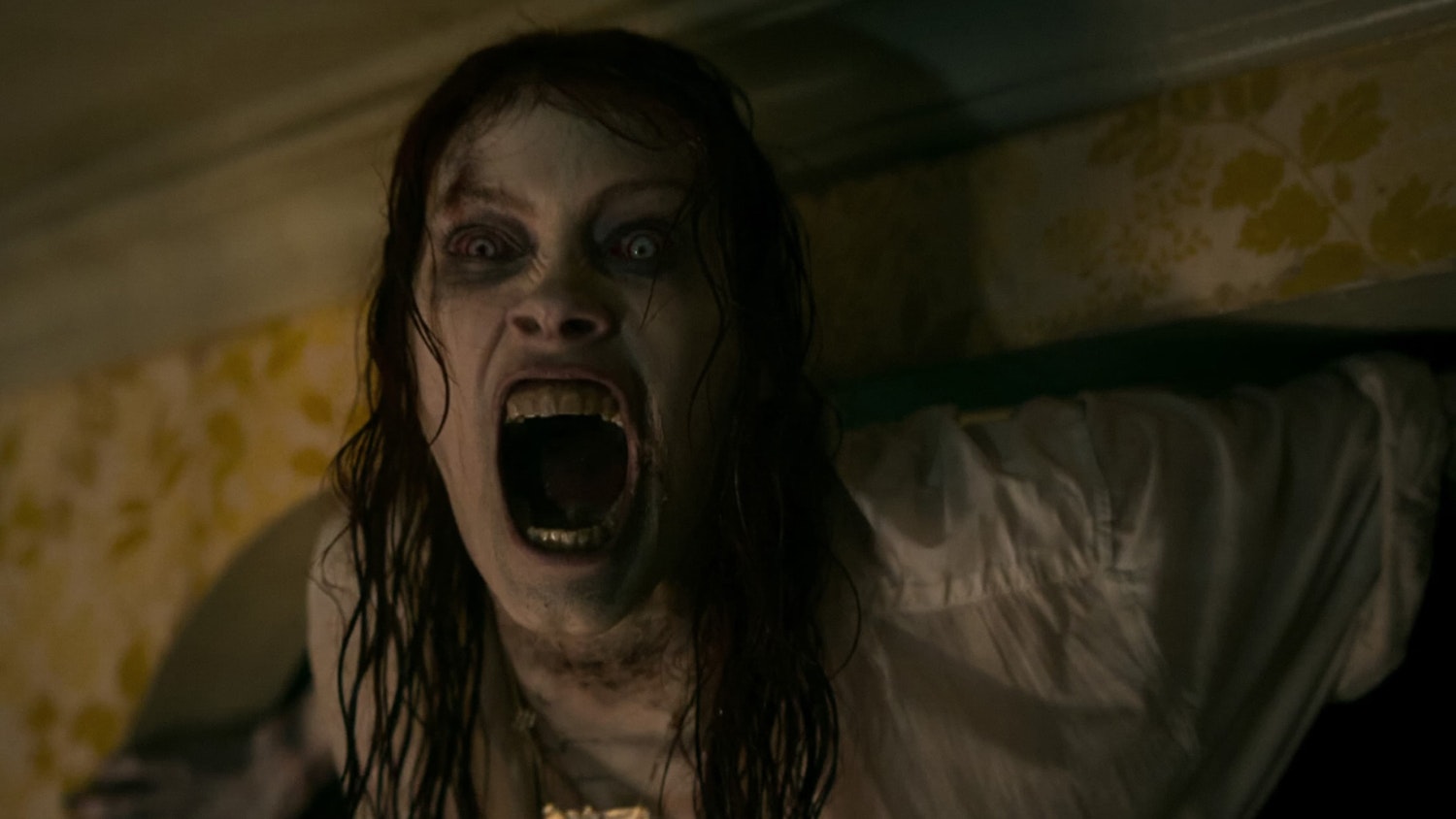
Ji bo Fede Alvarez xeterek bû ku klasîka tirsnak a Sam Raimi ji nû ve bide destpêkirin The Evil Dead di sala 2013-an de, lê wê xeterê berdêla xwe da û her weha dûvika wê ya giyanî jî kir Rabûna Mirî ya Xirab li 2023. Naha Deadline radigihîne ku rêzefîlm ne yek, lê du navnîşên nû.
Me ji berê ve dizanibû Sébastien Vaniček fîlima dahatûyê ya ku di gerdûna Deadite de vedigere û divê bibe dûvikek rast a fîlima herî dawî, lê em berfireh in ku Francis Galuppi û Wêneyên Ghost House projeyek yekcar dikin ku li gerdûna Raimi li ser bingeha an fikra ku Galuppi li Raîmî xwe xist. Ev konsept di bin çavan de tê girtin.
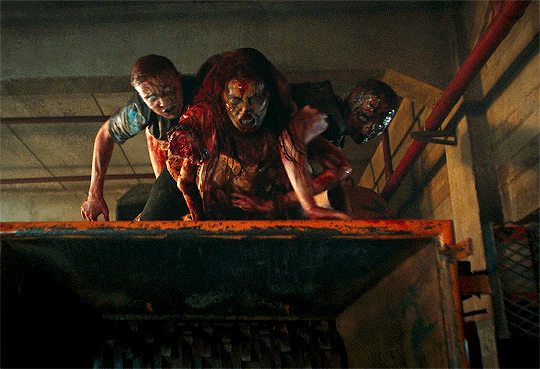
Raimi ji Deadline re got, "Francis Galluppi çîrokbêjek e ku dizane kengê me li benda tengezariya germî bihêle û kengê bi tundiya teqîner li me bixe." "Ew derhênerek e ku di pêşandana xwe ya taybetmendiyê de kontrolek bêhempa nîşan dide."
Ew taybetmendî bi sernavê ye Rawestgeha Dawî Li Yuma County ya ku dê di 4ê Gulanê de li Dewletên Yekbûyî bi şanoyê derkeve. Ew dişopîne firoşkarek gerok, "li rawestgehek bêhnvedanê ya gundewarî ya Arizona asê maye", û "bi hatina du dizên bankê ve tê xistin nav rewşek rehîneyê ya xirab de ku bê guman li ser karanîna zulmê ne. -an jî pola sar û hişk-ji bo parastina bextewariya xwe ya bi xwîn."
Galluppi derhênerekî kurtefîlmên zanistî/horror xelatgirtî ye ku berhemên wî yên pejirandî jî hene Dojeha Çolê ya Bilind û Projeya Gemini. Hûn dikarin guhertoya tevahî ya bibînin Dojeha Çolê ya Bilind û teaser ji bo Gemini jêrîn:
Nirxandina 'Şerê Navxweyî': Ma Ew Hêjayî Temaşekirinê ye?
Kanala meya nû ya YouTube "Ser û Fîlm" bişopînin vir.
Movies
'Mirovê Invisible 2' "Ji Berê Nêzîktir" Diqewime

Mosa Elisabeth di daxuyaniyeke pir baş-fikirî de di hevpeyvînê de got bo Bextewar Sad Confused ku her çend ji bo kirina hin pirsgirêkên lojîstîkî jî hebin Mirovê Nexuyan 2 li ser asoyê hêvî heye.
Mêvandarê podcastê Josh Horowitz li ser şopandin û eger pirsî Kefz û derhêner leigh whannell ji bo peydakirina çareseriyekê nêzîktir bûn. Moss bi kenek mezin got, "Em ji her demê bêtir nêzîkê şikandina wê ne." Hûn dikarin reaksiyona wê li ser wê bibînin 35:52 di vîdyoya jêrîn de nîşan bikin.
Whannell niha li Zelanda Nû ye ji bo Universal fîlimek din a cinawir digire. Mirovê Gurê, ku dibe ku çirûska ku têgeha Gerdûna Tarî ya tengahî ya Universal bişewitîne, ku ji dema hewldana têkçûyî ya Tom Cruise ya vejînê ve tu hêzek negirtiye. The Mummy.
Di heman demê de, di vîdyoya podcastê de, Moss dibêje ku ew e ne di Mirovê Gurê fîlim ji ber vê yekê her spekulasyonek ku ew projeyek crossover e li hewa dimîne.
Di vê navberê de, Universal Studios di nîvê avakirina xaniyek xênî de ye ku li seranserê salê Las Vegas ku dê hin cinawirên wan ên sînemayê yên klasîk nîşan bide. Bi tevlêbûnê ve girêdayî, ev dikare bibe hêza ku studyoyê hewce dike ku temaşevanan careke din bi IP-yên afirîdên xwe re eleqedar bike û bêtir fîlimên ku li ser wan têne çêkirin bistînin.
Projeya Las Vegas di sala 2025-an de tê vekirin, hevdem digel parka wan a nû ya rast a li Orlando ya bi navê Epic Universe.
Nirxandina 'Şerê Navxweyî': Ma Ew Hêjayî Temaşekirinê ye?
Kanala meya nû ya YouTube "Ser û Fîlm" bişopînin vir.
Nûçe نوچه
Rêzefîlma Jake Gyllenhaal ya Thriller 'Pressumed Innocent' Dîroka Weşana Destpêkê Distîne
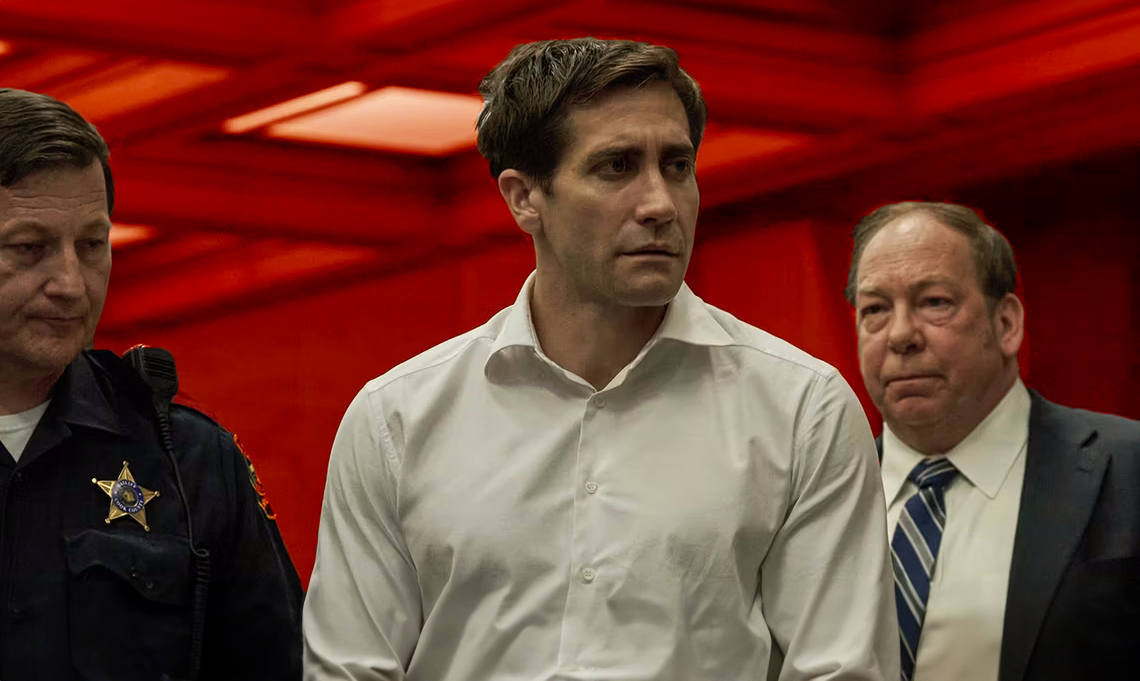
Rêzeya sînorkirî ya Jake Gyllenhaal Tê texmînkirin ku bêguneh dadikeve li ser AppleTV+ di 12-ê Hezîranê de li şûna 14-ê Hezîranê wekî ku di destpêkê de hatî plan kirin. Stêr, ku House House reboot heye Li ser Amazon Prime nirxandinên tevlihev anîn, ji dema xuyabûna xwe ve yekem car ekrana piçûk hembêz dike Kuştin: Jiyan li ser cadeyê li 1994.
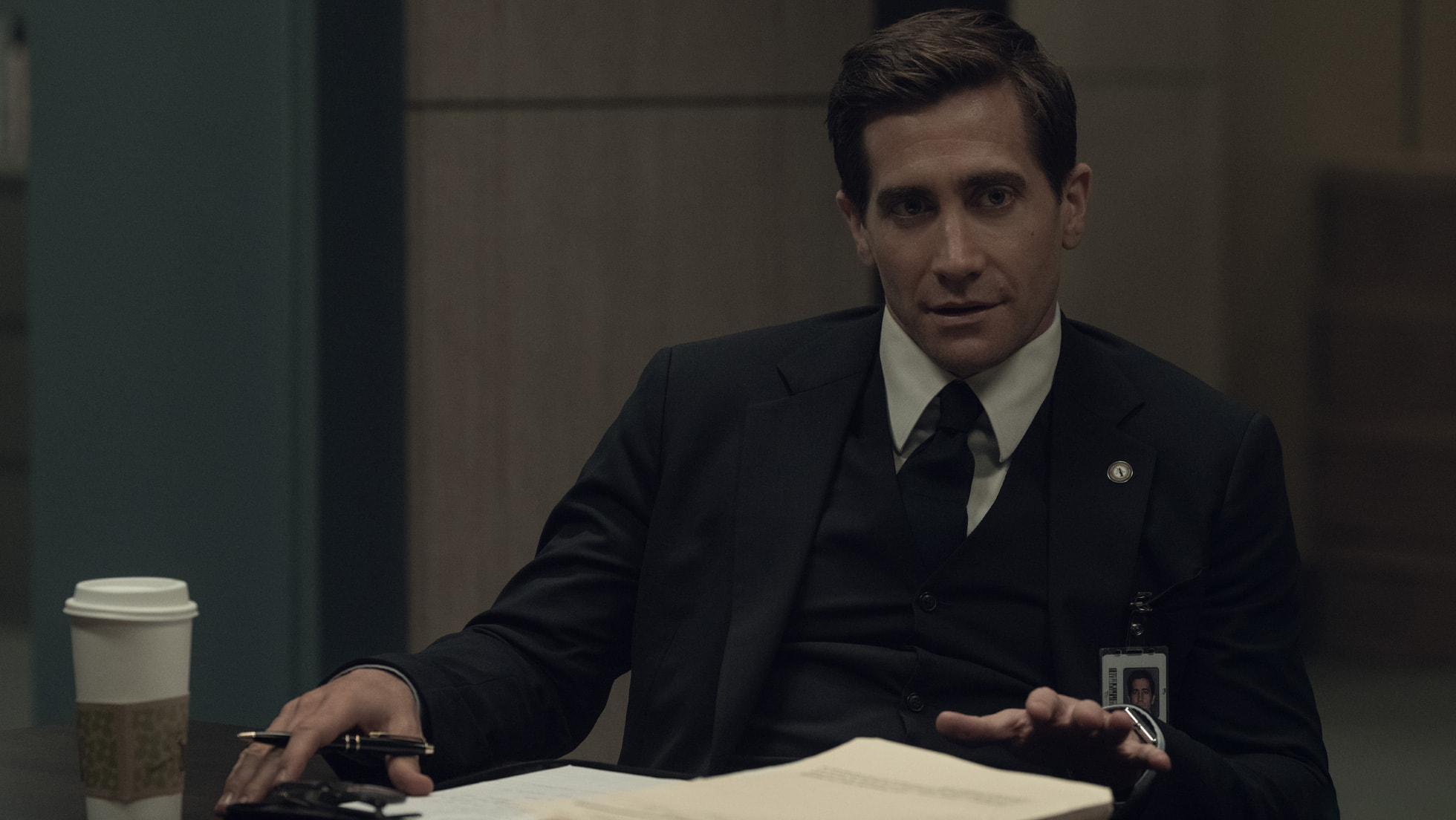
Tê texmînkirin ku bêguneh ji hêla tê hilberandin David E Kelley, Robotê Xirab JJ Abrams, û Warner Bros. Ew adaptasyona fîlima Scott Turow ya sala 1990-an e ku tê de Harrison Ford parêzvanek dilîze ku wekî lêkolînerek li kujerê hevkarê xwe digere ducarî dike.
Van celebên trîlerên seksî di salên 90-an de populer bûn û bi gelemperî dawiya zirav dihewand. Li vir trailer ji bo orjînal heye:
Ligor Deadline, Tê texmînkirin ku bêguneh ji çavkaniya çavkaniyê dûr nakeve: “…the Tê texmînkirin ku bêguneh Di rêzefîlmê de dê mêtingerî, seks, siyaset û hêz û sînorên evînê lêkolîn bike dema ku tawanbar şer dike ku malbat û zewaca xwe bi hev re bigire."
Li dû Gyllenhaal ev e Guy Ritchie fîlma aksiyonê ya bi navê Li Gewrê ji bo serbestberdana di Çile 2025 de hatî plan kirin.
Tê texmînkirin ku bêguneh rêzefîlmek sînorkirî ya heşt beşan e ku ji 12ê Hezîranê dest pê dike li ser AppleTV+ tê weşandin.
Nirxandina 'Şerê Navxweyî': Ma Ew Hêjayî Temaşekirinê ye?
Kanala meya nû ya YouTube "Ser û Fîlm" bişopînin vir.
-

 Nûçe نوچهrojan 5 ago
Nûçe نوچهrojan 5 agoDibe ku Rêzeya Salê ya Herî Bitirs, Herî Xemgîn
-

 Nûçe نوچهrojan 7 ago
Nûçe نوچهrojan 7 agoCast Orjînal Blair Witch Ji Lionsgate Bermayiyên Paşverû di Ronahiya Fîlmê Nû de Dipirsin
-
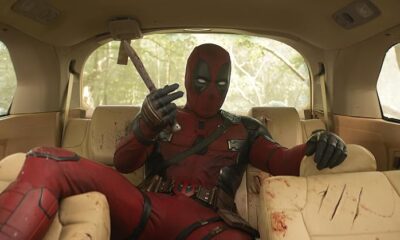
 Moviesrojan 6 ago
Moviesrojan 6 agoTrailera Nû ya F-Bomb Laden 'Deadpool & Wolverine': Fîlma Bloody Buddy
-

 lîsteyênrojan 5 ago
lîsteyênrojan 5 agoHeyecan û Serma: Rêzkirina Fîlmên 'Bêdengiya Radyoyê' ji Bloody Brilliant berbi Just Bloody
-
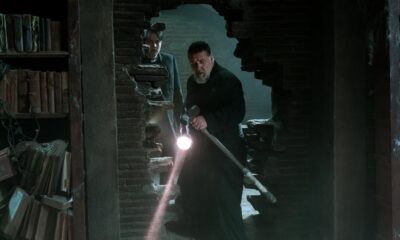
 Nûçe نوچهrojan 6 ago
Nûçe نوچهrojan 6 agoRussell Crowe Di Fîlmek Din a Exorcism de Dileyize û Ew Ne Berdewam e
-
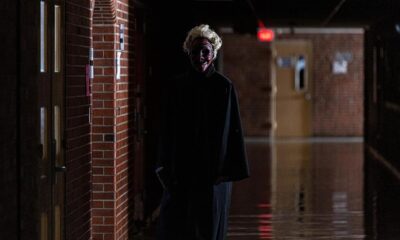
 Moviesrojan 6 ago
Moviesrojan 6 ago'Roja Damezrîner' Di dawiyê de Weşanek Dîjîtal Distîne
-

 Moviesrojan 5 ago
Moviesrojan 5 agoThe Original 'Beetlejuice' Sequel Cihek Balkêş bû
-
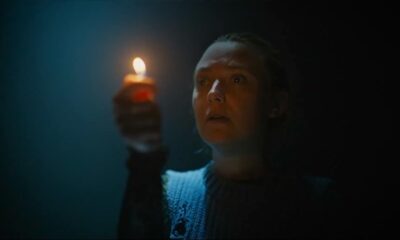
 Moviesrojan 6 ago
Moviesrojan 6 agoTrailera nû ya 'The Watchers' Zêdetir li Sirê zêde dike







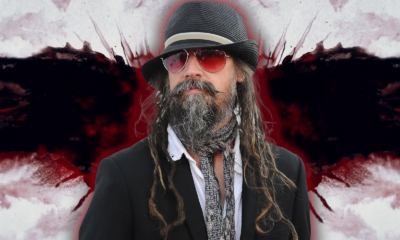

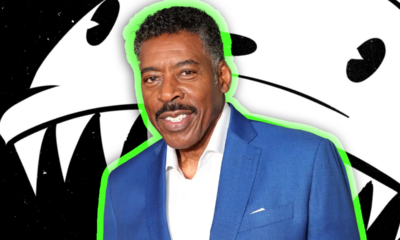


























Divê hûn bêne qeyd kirin da ku hûn şîroveyek bişînin Login